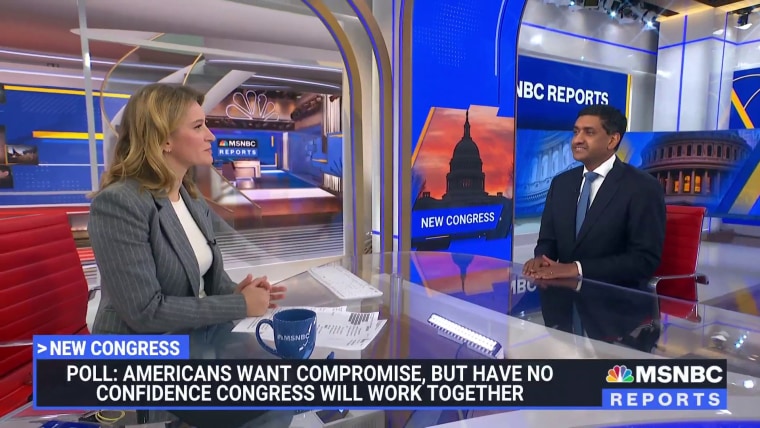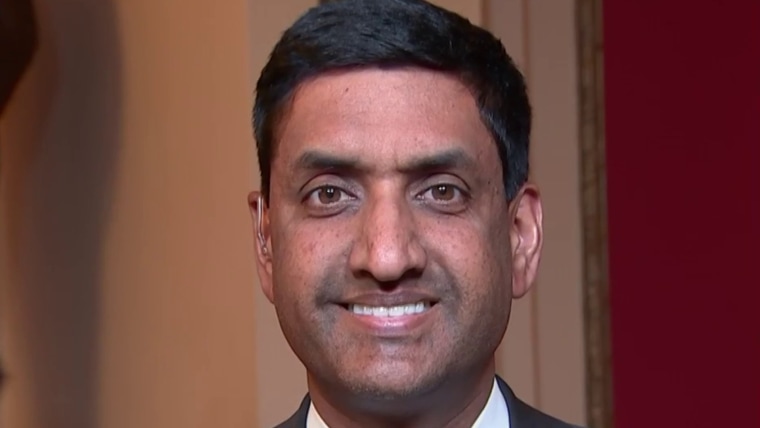As one of the 59 members on the House Armed Services Committee, it’s rare that I find myself alone. That was my experience last week, however, when I was the sole “no” vote on the proposed $886 billion defense bill. But it was a vote I was proud to make. Americans oppose a bloated defense budget that privileges defense contractors’ profits over a modern national security strategy and investments at home. Instead, we need to prioritize a new economic patriotism that revitalizes American production and lifts up the working class.
I’ve been fighting to end wasteful spending at the Pentagon since my first year in office, when I realized that the Pentagon is overcharged on almost everything it purchases. In 2017, I asked the Defense Department’s Inspector General to investigate a defense contractor called TransDigm acting as a hidden monopoly and engaging in price gouging. I then led an Oversight Committee hearing where the CEO testified and repaid $16 million to taxpayers. Fixed-price and sole-source contracts enrich defense contractors with huge profits and soaring stock prices.
You can’t talk about reducing our national debt without talking about the defense budget.
It’s no surprise then that 56% of all discretionary spending in the next federal budget will be spent on the Pentagon. About half will go just to defense contractors. You can’t talk about reducing our national debt without talking about the defense budget.
While this gross imbalance may have bipartisan support in Washington, Americans have other ideas. A YouGov poll for the American Friends Service Committee found that a majority want to cut to the Pentagon’s budget and reinvest the money in jobs, health care and other programs that directly improve Americans’ lives.
Stopping price gouging is just one way to find massive savings in military spending. Retiring the B-1B bomber — when the B-21 can achieve the same mission — will save almost $8 billion. Extending the life of the Minuteman III ICBMs instead of developing the new GBSD missile system saves us about $30 billion.

Lastly, we should rethink the over 800 bases overseas that are vestiges of the Cold War and ill-suited to modern challenges in the Pacific and Middle East. Even Gen. Mark Milley, former chairman of the Joint Chiefs of Staff, has said, “I think we have too much infrastructure overseas.” Closing unnecessary bases that do not serve a strategic interest could save us tens of billions of dollars.
Ending this wasteful spending doesn’t just save taxpayers a few dollars. It frees up more money to build a 21st-century military. As Ukraine has demonstrated, new technology is having an outsized impact on the modern battlefield for a fraction of the cost. We need more investments in emerging technologies like cyber warfare, biotechnology, artificial intelligence, quantum computing and space. (And we need an updated procurement process to make it easier for startups and entrepreneurs to work with the DoD.)
While the Pentagon’s budget has exploded, funding for health care, education, food assistance and other desperately needed programs has been cut.
Some will claim my vote was not a “serious” approach to foreign policy, particularly the challenges posed by Russia and China. This is false. It’s not what we spend, but how we spend it. Our highest Cold War defense budget, in today’s dollars, was just $609 billion. Was Reagan weak on defense? Certainly not, and we already spend more than twice Russia and China’s combined military budget.
To effectively address challenges from Beijing and Moscow, we have to revamp our domestic production to manufacture enough defensive weapons for Ukraine and Taiwan. We need to build long-range missiles capable of countering Chinese ships crossing the Taiwan Strait. And we need to strengthen our naval superiority with submarines, drones, stinger missiles and sea mines that are crucial for peace and deterring China. All of these goals are made harder so long as we throw away billions on overpriced weaponry and legacy systems that we no longer need.
Furthermore, while the Pentagon’s budget has exploded, funding for health care, education, food assistance and other desperately needed programs has been cut for years. Again and again, politicians denounce fraud in social programs that help poor and working-class Americans, while turning a blind eye to the waste and fraud enriching defense contractors.

Finally, there are of course those who say reducing defense spending hurts jobs in their districts. While Pentagon dollars do lead to jobs, the same amount spent on building manufacturing power across a range of industries essential to national security, like steel, chips and aluminum, would create jobs too. The same is true of primary and secondary education. If it’s jobs we care about, increase our domestic spending.
I trust that when the bill heads to the floor next month, more of my colleagues may join me in objecting. And it is my hope that American people' desire to make defense spending more strategic will prevail over the narrow interests of defense contractors’ lobbyists.
